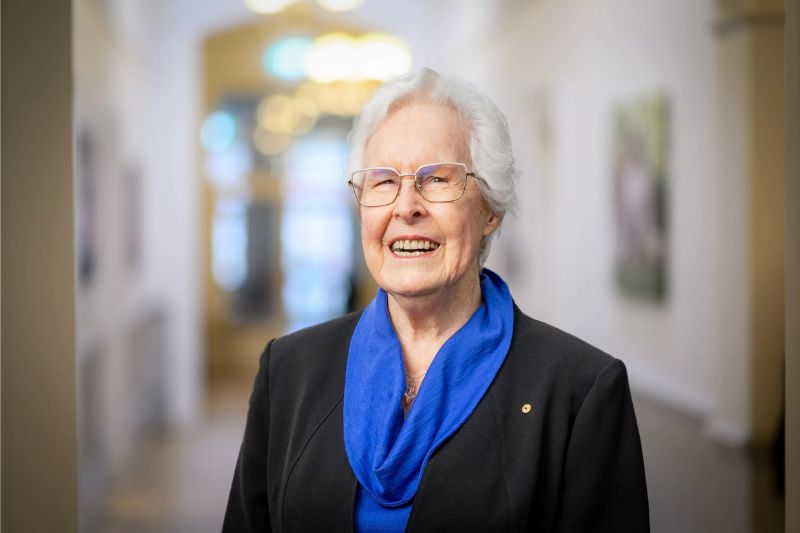I think we hear far too much about the big players on the world stage, especially about those who seem to be guided mainly by self-interest and motivated by their desire for the pomp of power. They seem never to have heard of the Irish saying that there are no pockets in a shroud; nor have they read Gray’s Elegy, with its salutary thoughts about the paths of glory leading inevitably to the grave. Instead, we hear far too little about modest lives led by people that are devoted to the ideal of service and that of helping others less fortunate than themselves.

I never met Sister Margaret Noone AM, who was the friend of a friend, and a Loreto nun. The order, officially known as the Institute of the Blessed Virgin Mary, was founded more than 400 years ago in Saint Omer, France, by English Mary Ward, who was strongly influenced by the Spiritual Exercises of Ignatius of Loyola. After many early struggles, the order spread throughout the world, concerning itself initially with education: Mandeville Hall, in the Melbourne suburb of Toorak, is a famous Loreto school, and at present there are seven schools in five Australian states. The order’s concerns spread away from education, however, and in Australia, where the order established itself in 1875, the sisters also work in the areas of Aboriginal welfare, care of the aged, and support of rural communities. Counselling, spiritual direction and care for homeless women are other areas is which the order works.
Sister Margaret was the daughter of a public-spirited Sydney dentist who often gave free dental care to people in need. He also believed that his daughter should have much the same opportunities as her brothers, at a time when girls were often denied career and educational opportunities. Sister Margaret thus became a teacher and school principal and worked in education for twenty years. She was also a grief counsellor at one stage, and it was then that my friend met her, at a time of great personal loss, during which my friend felt quite broken. ‘Margaret picked up the pieces and put them and me back together again.’ They remained friends, and so I heard quite a lot about Sister Margaret and her work.
This work entailed a period of study in America, during which time Sister Margaret was able to observe people who supported children who were suffering from life-threatening diseases and disabilities. She was also able to observe the various environments in which the children and their carers lived and coped. She was uncertain as to which direction her life would take on her return to Australia, but it was then that she met two sets of parents whose children had died of cancer. From this meeting, the idea of Very Special Kids was born.
VSK, as it came to be known, filled a gap in the social services landscape, for at that point there was no residential support for these children or their families. It was Sister Margaret who pioneered the concept of holistic paediatric palliative care, and VSK is still the only establishment of its kind in Victoria: it helps more than 850 children and their families. VSK was started in 1996: Sister Margaret was the establishment’s first employee and stayed on as patron after her retirement in 2002, while a part of the building in the Melbourne suburb of Malvern was named the Sister Margaret Noone Hospice in 2023.
Sister Margaret died peacefully on 3 January of this new year, in the company of family members and other Loreto sisters. She was 91. Her death was reported on television and in a great many national newspapers. Jeff Kennett, Premier of Victoria at the time of Sister Margaret’s early work for VSK, has noted his belief that many Victorians and Australians are in Sister Margaret’s debt.
Sister Margaret believed that compassion was an all-important concept and practice and that she had learned it and its significance from her father. She also recorded the fact that her faith was ‘an ever-present foundation.’
In St Matthew’s parable of the talents, the master praises two of the men who have been entrusted with some of his wealth and have managed to make it grow in their employer’s absence. Well done, thou good and faithful servant. The same praise could certainly be given to Sister Margaret.
Gillian Bouras is an expatriate Australian writer who has written several books, stories and articles, many of them dealing with her experiences as an Australian woman in Greece.
Main image: Sister Margaret Noone (Very Special Kids)